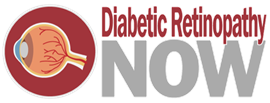Premier - Local Ophthalmologist
-
Macular degeneration
Dry macular degeneration, also known as age-related macular degeneration (AMD), is a common eye disorder that primarily affects people over the age of 50.
-
Loading the player...
What is Macular Degeneration and How Do You Know if You Have It? <p>Dr. David Maberley, MD, MSc. (Epid), FRCSC, Ophthalmologist, discusses macular degeneration and its symptoms.</p>Dr. David Maberley, MD, MSc. (Epid), FRCSC, Ophthalmologist, discusses macular degeneration and its symptoms.
-
What is Macular Degeneration and How Do You Know if You Have It?
It affects the macula, which is a small but critical part of the retina responsible for sharp, central vision.
There are two main types of macular degeneration: dry AMD and wet AMD. Dry AMD is the more common form, accounting for about 85-90% of cases. It is characterized by the gradual breakdown of the macula, resulting in the formation of small, yellowish deposits called drusen. Dry AMD typically progresses slowly and may cause mild to moderate vision loss.









